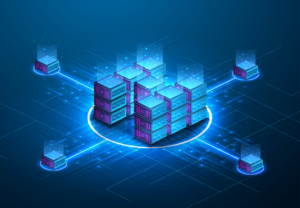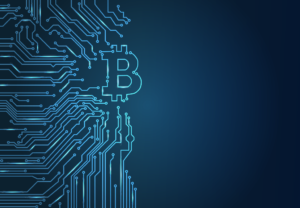Blog
Web3 Makes the Gaming Sector Better
Gaming is growing yearly, and hardware is the only true limiter in the space. Whether it’s VR systems or the increasingly powerful consoles and computers, gaming is continuing to take strides at every turn.
Yet as gaming grows, gamers continue to suffer from several issues they’ve experienced since its inception. Connectivity, ping problems, one player having a slight internet or hardware advantage, and DdoS (distributed denial of service) attacks are all problems Web2 has not been able to solve.
With the new internet on the horizon, the gaming industry is set to take another giant leap forward. Web 3 will help the gaming sector improve by using already available resources and creating new ones, and here’s how.
Less Network Vulnerability
Tech is gradually reducing network problems every year, yet there are still a few lingering problems for gamers. One of those lingering issues is the malicious DDoS attack.
DDoS attacks are when any third party sends more data to a user’s router than the router can effectively distribute. The overflow takes up all the bandwidth of a user’s internet and causes the player to lose connection entirely to the game.
Even worse, these attacks can also wholly stop users from accessing the internet, making them severe even for people not interested in games.
Businesses and other organizations are taking hits too. A recent study found that 70% of surveyed organizations experienced more than 10 DDoS attacks per month and many organizations lost $50,000 in revenue. Large and significant organizations are not immune to DDoS attacks either as Xbox and Playstation (owned by their even bigger Microsoft and Sony parent companies) suffered a massive attack during the holidays in 2013.
Web3 is prepared with a new solution for network connectivity. To commit a DDoS attack, you need the victim’s IP address or some sort of identifying network information. The new web is all about owning your data, so expect VPNs to be better, faster, and more ubiquitous.
VPNs, or virtual private networks, prevent DDoS attacks because the user’s IP address shown to the world isn’t their real IP, and they can switch IPs at will. This makes it much more difficult for an attacker to cut off internet access.
Web3 users will become accustomed to their data not being broadcast to the public. That means the new internet will protect users by protecting their identifying information.
No identifying information means no network attacks.
Selling Rewards and Accolades On The Open Market
Players already earn real money by playing games, either by playing on others’ accounts or selling items and services. One player reportedly earned an incredible $780k in a massive cosmetics trade in the game CS GO.
Web3 will make these transactions easier through the blockchain using smart contracts, non-fungible tokens (NFTs), and cryptocurrencies. Players could create digital assets and sell them on the blockchain. Developers could create digital assets of accomplishments that could be sold on the Web3 open marketplace, like a digital ring or wearable cosmetic for a tournament victory. Gamers can choose to sell their achievements for greater financial gain or keep them to decorate their characters.
If fans wanted to buy accolades of famous players, NFTs would allow someone to buy an accomplishment or trophy similar to other events and collectibles. Perhaps soon, it won’t be so strange to see an NFT and Olympic medal next to each other side-by-side with equal value.
The Metaverse
By far, the most critical quality of life change is in VR. Though virtual reality will impact more than just games, it will primarily affect the daily life of gamers. VR allows people to experience things they likely won’t get to in their lifetime, such as space travel or traveling to different countries.
But gaming will likely take the most advantage of this tech, along with movies. Gamers will get to experience games as though they’re really there, and with increasing quality…potentially getting to the point that the metaverse achieves accurate haptic feedback like touch and smell.
Since the metaverse will be so pivotal to the online marketplace in Web3, companies will keep innovating the newest and greatest VR experiences in an attempt to grab a foothold in the metaverse. This innovation will unlock the potential of VR for gaming.
Game Quality Will Only Continue to Increase
The gaming industry will likely be a driving force in creating Web3. Because of this, it will cater to the gaming community. A private internet experience will ensure hackers or users with malicious intent cannot glean any information nor attack other users’ wifi connection.
Now, why should you care about what happens in the industry if you’re not into gaming? History shows that innovation in one space always drives innovation somewhere else. The GPS systems we have now came from military tech trying to locate submarines. Innovations in hardware like computer CPU chips unlock new potential for businesses and consumers.
Similarly, any innovations made in privacy or VR tech to help gamers will help others, too, in ways we don’t realize. For example, private data will help mask internet connections for people whose governments do not allow access to news websites or the internet in general.
Web3’s innovation offers new opportunities to people across the world; all you have to do is jump on board.
Join us at W3BX so you know everything you can about this opportunity.








